According to Lori Gottlieb, who is a psychotherapist based in Los Angeles, the author of Maybe You Should Talk to Someone, and co-host of the podcast Dear Therapists, it’s very common for people to struggle with fully opening up to their therapist and hide things from them at one point or another.
There are many reasons why we stay silent. Sometimes we worry that the information will make the therapist view us in a negative light, but we also might find the issue embarrassing, or just be stuck in denial.
To find out more about the topics that we keep to ourselves, Redditor u/Music-and-wine made a post on the platform, asking: “Therapists, what is something people are afraid to tell you because they think it’s weird, but that you’ve actually heard a lot of times before?” And the replies they received provide an interesting insight into what usually stays behind closed doors.

#1
I’d say a common one is believing that there’s something innately, irreparably wrong with them that makes them unable to ever truly ‘fit in’. For a lot of people it’s such a deeply ingrained belief that it can be extremely painful to acknowledge or express, regardless of the level of personal success in their lives.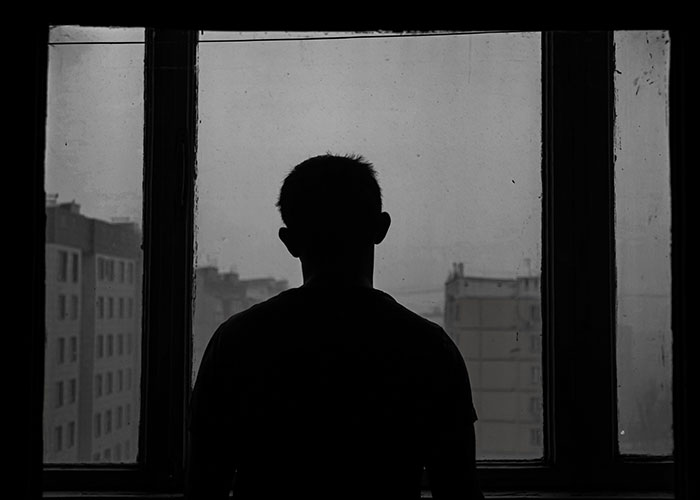
Image credits: GuidedBySteven
#2
That they “hear voices”. I’ve found that a lot of people aren’t familiar with their own internal dialogue or “self talk” and that this is typically “normal” internal processing. A lot of people think that they are “hearing voices” and hallucinating. There are some pretty simple questions we can ask to determine if it’s hallucinating or just internal dialogue, and most often it’s the latter.
Edit: I want to clarify that not everyone has am internal “voice”. Some have none at all, some have more of a system of thoughts that aren’t verbal, feelings, or images. That’s normal too!
Image credits: whatever-lola-wants
#3
Basically, anything having to do with sex. There’s so much shame. Sexual abuse. Sexual fantasies and fetishes. Erectile dysfunction. Infidelity. Becoming sexually assertive. I’ve been told that I have a good “psychologist’s face.” I try not to have a strong reaction to normalize the discussion. With adolescents, they are extremely anxious to tell me if they’ve relapsed or aren’t doing well. They cut one night or they were suicidal. They’re having a lot of negative self-talk or panic attacks. They’ll come in, pretending everything is okay. It’s usually in the last 10-15 minutes that they’ll say something. They’ll reveal that they worried they’d let me down. That I’d be disappointed in them. It usually turns into a discussion about policing other people’s feelings and tolerating emotions. I explain that I care about their well-being and it’s my job to monitor my emotions and reactions, not their role.
Image credits: MyDogCanSploot
#4
Unwanted intrusive thoughts are normal and do not mean you are a bad person (yes, even intrusions of sexual/religious/moral themes). By definition, these are thoughts that are unwanted bc they go against your own values and highlight what you don’t want to do (eg, a religious person having unwanted blasphemous images pop into their mind, or a new parent having unwanted sexual thoughts about their new baby). However normal these thoughts are (over 90% of the population), the moral nature of these thoughts mean that often people experience a lot of shame and take many years before they first tell someone about them.
Image credits: cbearg
#5
That they do not know what they enjoy doing. Often they have people in they’re life, including therapists, say “try to do something fun today” or ask “what do you like to do when you have free time?”. Many people I work with do not know what those are. Once I explain that I dislike these statements /questions because they assume people should know the answer, and that many people don’t, I can watch as they relax, take a deep breath, and say something to the effect of “oh my, that’s so good to hear. I have no idea what I like to do. That’s part of the problem.”. More often than not they feel like they should know and that everyone else their age has it figured out. They are embarrassed to say that they don’t know when in fact not knowing is very common. I couldn’t even try to count how many clients I’ve had this conversation with.
Image credits: ljrand
#6
Two topics come up with regularity: when someone discloses to me that they were sexually abused as a kid, and/or when some is experiencing suicidal ideation. Both are something I hear from clients every single day, and so I don’t find it weird at all. But, when I have someone in front of me who’s talking about it for the first time, I know it’s important to validate the fact that even though I might be talking about this for like the fifth time that day, they have never talked about this EVER, and are in need of gentle care to feel safe.
Image credits: HighKeyHotMess
#7
I have heard some variant of “This is probably weird, but I feel if I am my true self around others than they won’t like me” more times than I can count. As I explore the formative situations to this belief alongside my clients it definitely pulls at my heart strings.
Image credits: oreganick
#8
I do a lot of trauma work. Many people who have experienced molestation or sexual assault feel ashamed and confused because their bodies responded. Having an erection/lubrication or even an orgasm does not mean you wanted the sexual contact and it is still assault. Clients often hold a lot of shame and confusion about this. They wonder if it means they wanted it or if there is something wrong with them. It is a tough thing to work through because of this. Assault is assault. Sometimes human bodies respond to sexual touch even when we don’t want that touch.
Someone once said it’s like tickling. You laugh when you get tickled even though you don’t want someone to tickle you
Image credits: roomforathousand
#9
Recurring intrusive thoughts about harming others. Can be hurting/killing someone or sexual fantasies about children or relatives. Usually people take a while to admit those.
The reality is that if you are having them frequently you aren’t dangerous. You probably have OCD and are terrified that you might be dangerous.
Image credits: omg1337haxor
#10
A common one in the time I was a therapist was simply “I don’t know”.
You’d be surprised how reluctant people are to admit that they don’t know why they’re feeling how they are. But that’s exactly why you’re (or were, I’m not a therapist any more) sat there with me; so we can figure out why together.
It always put me in mind of a line from America by Simon and Garfunkel:
“Kathy, ‘I’m lost’ I said, though I knew she was sleeping. ‘I’m empty and aching and I don’t know why’.”
Image credits: kutuup1989
#11
I work in an older adults service for people with dementia and mental health problems. I see a lot of family members/Carers feeling ashamed of the fact that they are finding it incredibly difficult to care for someone that has dementia or a chronic mental health problem.
Carer burnout is a real issue and people need to know that it’s not easy to see someone you love struggling every day, or slowly fading away month by month. Carers and family members desperately need time for themselves and need to know that it’s okay to feel the way that they do.
No one is superhuman and we all have our own needs. It’s why we have therapy groups for Carers. It’s okay to struggle to look after someone and you should in no way feel ashamed of having those feelings.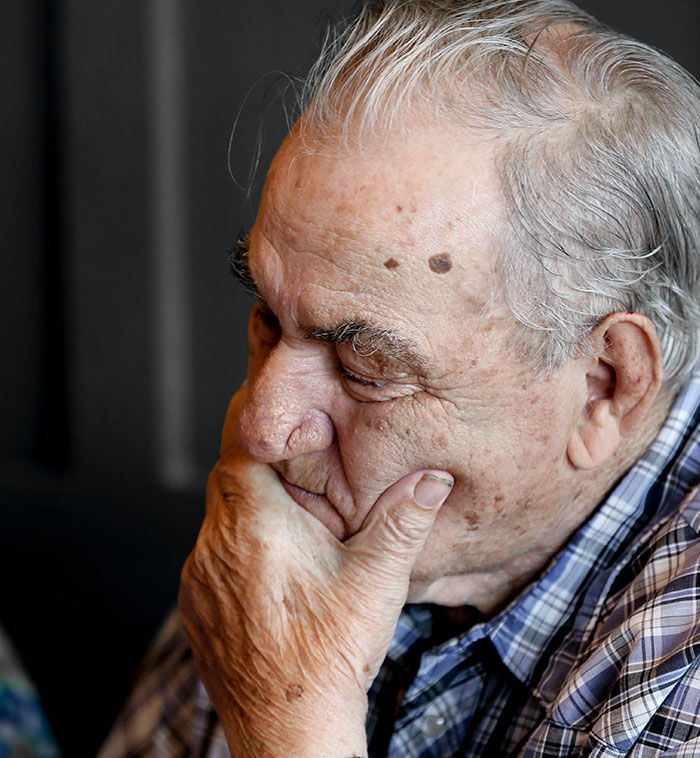
Image credits: aron24carat
#12
Clients become quite fearful of admitting that they weren’t successful since the last time they had a session. This could include not succeeding in using a coping skill that they’re learning about, or not being able to complete a homework assignment I gave them. Humans aren’t robots, and therapy is a lot of work.
That being said, I don’t expect people to be perfect as they start to work on themselves in a positive way. It takes time to really commit to change, especially in relation to trauma or conflicted views that an individual holds. I feel as if the client doesn’t want to let me down as their therapist, but these “failure” events are just as important to talk about as successful moments!
Image credits: DnDYetti
#13
I work with a lot of anxiety and trauma clients Whenever I ask if they would describe their experience as being anxious about being anxious, I get a lot of ‘omg, yessss.’ Anxiety has such a physical impact in the body (heart pounding, trouble breathing, feeling faint or cold, tunnel vision) that we become aware of our body’s reaction before we even notice the anxious thoughts triggering the reaction. Then we panic about why our bodies are flipping out when we’re not even aware of feeling threatened, and the anxiety compounds on itself.
Anxiety is like an alarm system in our bodies to signal the presence of (real or perceived) danger. What would you do if your alarm was going off at your house? Check to see if there’s a real threat (scan your environment/situation to ground yourself in the present), turn off the alarm (breathing exercises do help, along with mindfulness techniques like body scans), and then investigate what tripped the alarm (process thoughts around the situation that read like danger to you). It’s also important to note that danger doesn’t need to be a gun getting pulled on you. Panicking during a presentation that could impact your job and threaten the way you pay your bills and afford your life can feel pretty dangerous if you think about it.
Image credits: pomp_le_mousse
#14
Imposter syndrome is present in nearly every client I’ve worked with (hundreds over the years), and it sometimes is hard for people to recon with that they feel incompetent in work or life. It is super common to feel like everyone else has it figured out, and that you are the only one flailing. The biggest thing that I’ve learned in transitioning to adulthood and in getting an in depth look into so many people’s lives, is that we are all just trying to figure it out, and a lot of energy goes into trying to make it look like we know what we are doing and fear of being found out.
Image credits: 3nd0rph1n
#15
Being tired of being a mother. There’s this social thing of loving your kids and they should be the first thing in your life, but having a child is messy and a real hard work, is normal to just want to take a break once in a while from all that responsibility.
Image credits: niatpackcalb
#16
The amount of people I see who feel like they should be grieving a “certain way” and are afraid that they “must not have loved someone,” or, “must not have cared.” People grieve in all sorts of ways. The “5 stages of grief” are bulls**t.
I was consulting with another clinician who was seeing a couple whose daughter had died. The wife was convinced that the husband must not have cared about her because he “wasn’t grieving out loud.” In reality, while she had been going to support groups and outwardly expressing, he had been continuing to work in a garden that him and his daughter had kept when she was alive, using that time to process and grieve as he did. Both were perfectly fine ways of grieving, however it is expected that ones grief is more than the other. They both ended up working it out however, he driving her and others to their weekly support group, her attempting to work in the garden with him on the condition that they didn’t talk. Really sweet.
To that same extent, the amount of people who are unaware of their own emotions and emotional process is astounding. So many people feel only “angry” or “happy” and worry something must be wrong with them otherwise. Normalizing feeling the whole gamut is just as important. Recognizing what we’re feeling as well as what it feels like in our body when we’re feeling is incredibly helpful for understanding how we process and feel. As a whole, how we treat emotions as a society is kinda f**ked. Thanks for coming to my Ted talk.
Image credits: sredac
#17
That they haven’t had sex with their partner in years and don’t know how/if they will ever have sex with their partner again. There is so much shame around sex in the USA that a lot of people are scared to talk to their partner about their sexual needs. Time goes by, and suddenly they haven’t had sex in 3, 5, 10 years. It starts for a lot of people in their 40s and 50s.
A lot of people (falsely) believe there is something wrong with their marriage because they fantasize about people other than their partner.
Image credits: Chininja1
#18
That they resent parenthood.
Image credits: Catflappy
#19
Speaking to their departed loved ones. Thankfully, theories now support this and don’t consider it to be a sign they’re not “moving on with their lives”. I encourage my clients to explore the continuation of their relationships with the deceased.
Image credits: Eachfartisunique
#20
That they don’t like their family members, are angry/want to stop communication with their parents etc. I work in a country which Is more culturally collectivist, so not wanting anything to do with your parents makes you an a**hole in the current cultural sense.
We deal with this almost on a daily basis. There is deep and profound shame in this and when we find that line of “oh, it might be that your parents are toxic to your mental well being/trigger your trauma” many of my clients actually get visibly angry with me.
Cultural psychology is so important, cause when I first moved here I had my American/European hat on, oh boy, did I need to adjust.
EDIT: I’m in Ukraine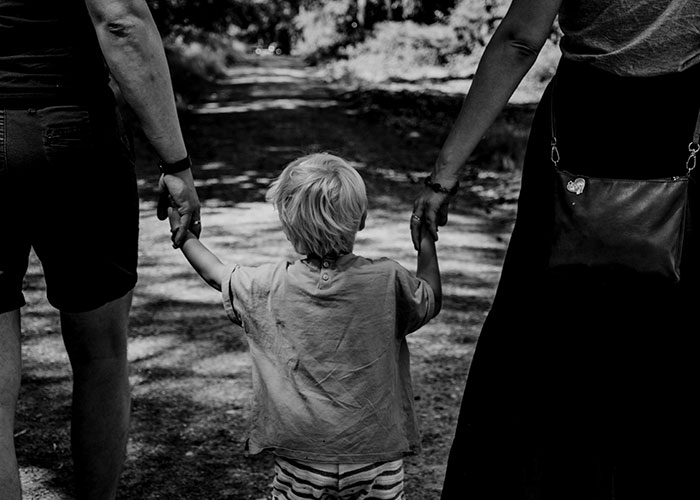
Image credits: leonilaa
#21
Some of the most common ones have been visual and/or auditory hallucinations and suicidal thoughts. I usually hear “I don’t want to be put in the hospital” or “I don’t want you to think I’m crazy”. Also, basically anything sexual. I’m not going to judge you for being into BDSM, fetishes, etc. Honestly, I’ve probably heard it before and I’m not here to judge you. Same goes with any non-consensual experiences (especially if we’re working through trauma).
Image credits: KDay5161
#22
Licensed Professional Counselor here.
Pretty much everything.
But a common one is “secret feelings.” Secret resentment towards a spouse or the difficulties of being a parent. Lost attraction in a spouse. Private daydreams and sexual fantasies.
Seems like every time someone tells me “I have this really weird daydream I’m always having…”, they then tell me their variation of the Suffering Martyr Daydream. So common it has a name!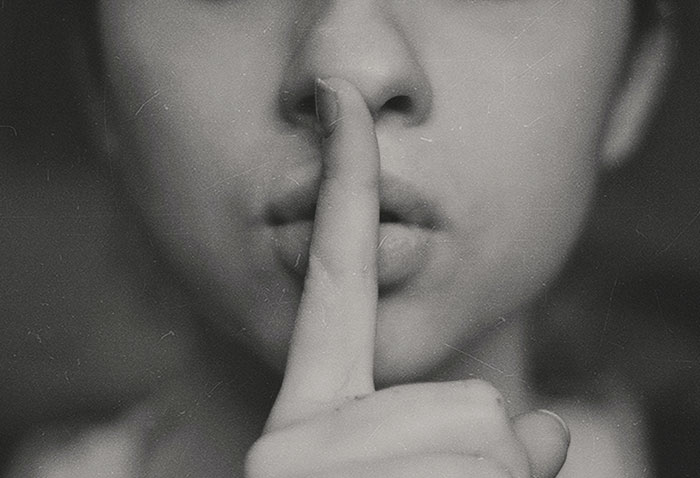
Image credits: my-other-throwaway90
#23
As someone in the substance abuse field I know that it’s difficult for clients to tell me they got high with a parent but it’s something I get told fairly regularly. It’s kinda sad.
Image credits: mkthompson
#24
PhD in Clinical Psychology here.
Just to name a few:
They had sexual/semi-sexual encounters with their siblings (same sex or opposite sex) when they were 6-12 years old.
That they don’t like [insert annoying thing here] about their partner/spouse. This typically happens within a “mostly good” relationship, where it’s like “I love my husband, he’s a great guy, [insert 10 other good qualities], but I HATE that he’s [drinking, not spending time with me, not spending time with the kids, is messy, etc.]
That [despite stating they’re straight and possible being hetero-married] that they’re not straight
That they’re really afraid that no one likes them.
That they’ve thought about suicide but wouldn’t actually do it.
That they’ve thought about suicide and had actually considered it.
That they feel like they’re living their lives out of duty – to society, to their parents, to their partner, to their kids – and they hate it.
Image credits: ChimericOwl
#25
So many things… All very subjective, but mostly something that makes them feel like they’re abnormal in some way, “creepy”, unsuccessful, failures. Different things make people feel that way and it’s always hard to admit.
It takes a lot of courage to be open and honest in therapy and I value that bravery and their risk taking every time.
Image credits: midnight_thoughts08
#26
Usually it’s sex related. Shame about their desires or kinks is common. Gender questioning is another. Some people are ashamed of things they did in childhood or adolescence, haven’t ever told anyone and think the team will be horrified. We have heard everything. Everything. I’m always compassionate and always understand why we do the things we do. I’ve yet to have anyone bring something I can’t ‘get’.
Image credits: throwaway4u2021
#27
I’m support worker (social worker) not a therapist.
I’ve had clients too scared to tell me their accomplishments because they think they should only be bringing their problems to case management and that if we see them getting better that we won’t care/prioritize them as much
Another is hard drugs. We don’t endorse it by any means but we have to know if we need to keep an eye out for inappropriate behavior and overdoses. We never get mad at them for being high, we just wanna send them to their room to sober up.
Image credits: sadbisexualbean
#28
Small ways they’ve made progress in the week. I know this isn’t technically weird, but my clients sometimes don’t want to tell me this, either because they fear I’d turn round and say they don’t need therapy any more, or because I might find the progress unnoteworthy. Both of which are totally untrue!
Image credits: Eachfartisunique
#29
OCD gets misunderstood a lot. It’s not just having a clean house or liking things to be organized. Common intrusive thoughts can include violent thoughts of harming children and other loved ones, intrusive thoughts of molesting children, fear of being a serial killer etc. My clients can feel a lot of shame when discussing the thoughts or worry I will hospitalize them.
Image credits: darkblue15
#30
Recently I’ve had a lot of biracial and multiracial clients who are super hesitant to talk about racism they experience within their family. Mono- racism, essentially. Family members on one side expressing racist ideas without recognizing the group they’re targeting also includes their loved one.
I’ve also gotten a lot of people hesitant to admit they’re in therapy due to cultural shame around it. And those really hesitant to express their personal goals/desires are different from what their family wants/has planned for them. The internal debate between values from culture of origin vs American cultural values
#31
People seem to think most people have a myriad of friends; this simply isn’t true. Most people have 1-2 friends.
Another one is erectile dysfunction. It’s really common in all ages, people tend to think it’s only common for older men.
Also people thinking they are the exception or different from everyone else in any number of ways (e.g the only person that has stayed in their marriage after an affair, the only person that gets anxiety over small things, the only one that ‘can’t handle’ the stress of the pandemic, etc.). The relief I see on peoples faces when I assure them they are “normal” will never get old.
#32
Especially with males they are a ridiculous level of afraid to say them have either emotions or that they cry or have cried. I have had guys even tell me “Men arent suppose to cry”. That is the simpliest thing, but honestly the saddest thing that men cant feel safe expressing their emotions due to societal standards.
#33
Child/adolescent therapist here: sexual orientation and identity related revelations are hard for them. I always make sure that they are not alone and this is all natural.
#34
Missing their depression after their mood starts to improve.
#35
I work at a domestic violence and sexual assault shelter, so not a therapist, but….
Clients often feel wrong for still loving their abuser. They won’t talk about it because they’re embarassed but it really is one of the most common things. You don’t suddenly undo months/years of gaslighting and indoctrination that lead to you being fully devoted and in love with your abuser and that’s okay. It takes time and processing to heal from that.
#36
That men feel very lonely but won’t discuss it bc it’s viewed as weakness. It might bc ive worked in the south only, but it’s super common.
#37
I have a ton of people who don’t know their values. They will tell me vague things (family, security) but struggle to define what those things mean to them or how they make decisions based on values. Teaching a bunch of values and discussing what each mean to a person is an amazing way to get really into therapy a few sessions in and really helps clarify what behaviors need to be looked at. People afraid of this cause it’s so simple that they feel stupid or incompetent for not having a thorough grasp on this subject (usually takes 5 minutes each session to validate and worn through).
#38
One thing I haven’t seen directly addressed here is an adult virgin.
#39
People are ashamed to admit that they are back in their addiction. Even friends that I help a little (with non too serious addictions), don’t want to talk to me when they have setbacks.
Relapses are normal in the process of rehabilitation. The important thing is to accept them as soon as possible and start over again
#40
That they think they have feelings for us, love us, etc. Transference is a hell of a thing. Imagine you’re a middle aged male with a history of invalidation from females and a traumatic past and suddenly you’re spending an hour a day 4-5 times monthly with a young woman who attends to your needs, validates you, speaks kindly, and praises you. It’s more normal than you think. Typically I give them psycho education about transference, relate their feelings toward their past experiences, and move on. If a client has a history of it though then I try to refer them to a male therapist because it can affect the therapeutic process if it continues or escalates.
#41
Loneliness. Often clients say they feel lonely, but they believe they’re the only ones who feel this way while everyone else has friends, family, etc. Yet, it’s so common, even among people who don’t appear to be lonely.
Perfectionism- clients thinking they are much more flawed than everyone else, even if they are very high functioning.
#42
I have a lot of older men who tell me that they’ve had sexual or romantic feelings for other men their entire lives. I am often the first person they’ve ever told. It breaks my heart knowing they’ve lived their entire lives without being able to explore their feelings or live as their authentic selves.
#43
The relief one feels when a loved one dies after a prolonged illness. It’s very normal and common, yet a very guilt laden emotion. It’s perfectly okay and normal to feel this even amongst the grief and sadness.
#44
I’m a therapist at a university counseling center, and I’ll say people who are a part of the LGBTQ+ community who have fears that past sexual trauma “caused” them to have that identity
#45
Suicidal ideation as a form of self soothing. Knowing there’s always an option even with no plan on doing it.
#46
Many of my clients lived through severe childhood trauma and neglect. They had no one to model or explain healthy emotions or to show them appropriate ways to react to stress, fear, anger, etc. Most often they’ll describe a completely normal reaction to a stressor and then follow that up with “I don’t know if that’s normal.” These are adults who were exposed to so much dysfunction during their formative years that they don’t know whether it’s normal to cry when they’re anxious or afraid, feel angry when their boundaries have been violated, etc.
#47
Husbands sexually abusing their wives. It’s f**king heartbreaking every time I have to explain to my clients their husband’s actions are textbook sexual assault.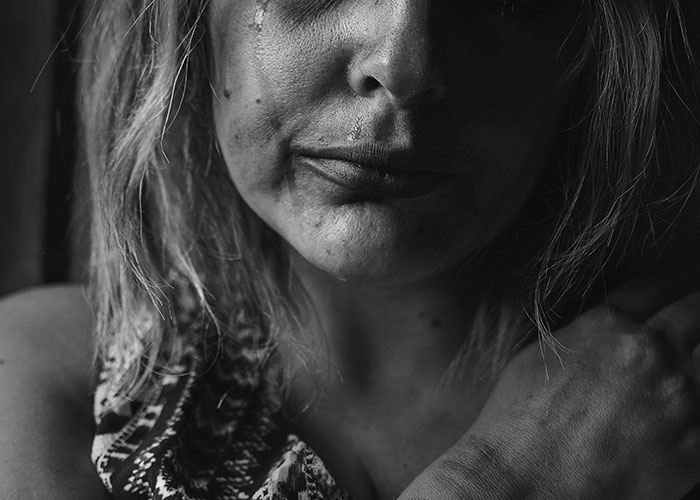
Image credits: DoubleDThrowaway94
#48
I treat veterans with PTSD. I quite often have people who are hesitant to disclose that they killed someone, even though it is obviously a super common story in the context of my job.
#49
I’m doing my internship so not a therapist yet and I couldn’t believe how many people admitted to being chronic nose pickers. And no I do not work with children.
A chronic nose picker would be someone who’s digging so deep they chronic nose bleeds. Some of them even had cartilage torn inside their nose. Not your average little pic here and there when the kleenex isn’t good enough.
#50
Hyper sexuality after some sort of sexual trauma.
#51
[This happened only with men] They think that they’re a monster and a weirdo for sexualizing someone, but that’s what literally almost everyone does.
#52
Basically everything. We’re all pretty normal, at the end of the day and most people would do and think similarly in similar situations. The big one is Catastrophic thoughts. Essentially, those voices, thoughts, etc. in our head that spin out of control and tell us all the ways our lives will catastrophically fail.
#53
I’m an educative psychologist in a rural school of Latam, here lots of people are ashamed or afraid with getting married, I mean to live with other people. No problem with teens over 20 yo but there are older people saying I prefer to live alone instead living with my family. And when I say a Alone, I mean very alone. Over 10k people here where i am and ive just met less than 10 old people living with someone else.
#54
I run a program that’s trauma informed. One theme that comes up frequently in adults is attachment trauma, & extreme codependency with parents. This would be evidenced by sharing a bed with a parent long past developmental norms. Yet this is how both were coping with traumatic stressors as best they knew how at the time. These were not sexual though in some cases it stunted or repressed sexual independence. Guilt & shame accompany these memories- receiving these involve a lot of trust & care- & I always seek additional clinical supervision to ensure that all trauma experiencers are carefully supported.
#55
When I was in private practice, I specialized in Borderline Personality Disorder. I did DBT, which is the evidence-based treatment for it, but there is so much shame and stigma around having BPD I have seen providers hesitate to diagnose it. My favorite sessions were the ones where I would talk about why and how people get BPD and seeing the relief on people’s faces when a therapist can see that this is also something happening TO them and that there is a type of therapy specifically designed to help…those were my favorite sessions.
And, to answer the question correctly, BPD. BPD is much more common than people think.
#56
Passive suicidality. The idea that things would be easier (for you and/or others) if you just didn’t wake up or disappeared or something. This happens to many of not most people who get depressed, but they feel uncomfortable bringing it up. They’re scared I’ll hospitalize them. For the record, we won’t.
For those of you struggling with depression and suicidality of any kinds, please tell people. Please tell a therapist. Talking can help. Knowing you’re not alone can help. Knowing you’re not crazy and that what you’re experiencing is totally normal can help. Please let someone help you.
#57
Everything.
Did clinical work for about 5 years and heard just about everything ten times over.
But seriously, people are often reluctant to talk about their darker urges and feelings. Therapy is likely the only chance where you’ll get to have that conversation openly and honestly. Therapists know everyone has this side to them, and working on it is both difficult and admirable.
#58
A lot of my clients are hesitant to share that they gave themselves a break. A lot of the people I work with have a high degree of self-criticism and perfectionism that they tend to be sheepish when they tell me about spending time watching tv or “being lazy”. These are often the same people who work on weekends, volunteer for additional assignments at work, never take a day off even if sick, etc. etc.
#59
It sounds vague, but just “facing themselves”. Their “negative sides” acknowledging that whatever dark thoughts or perceptions of themselves seems to make them real. Not the case of course bc we are not our best or worst selves. But we explore those boundaries in our heads for sure.
#60
A lot, and I mean A LOT, of people who experienced sexual abuse feel very guilty for a myriad of reasons that are not their fault
Guilty for “attracting the attention”
Guilty for not speaking up
Guilty for enjoying being “seen” by someone
Guilty for having any sort of pleasure from their abuse.
All those feelings are common and addressed in therapy. But it is so hard for people to discuss it.
#61
1.Gay thoughts
2.Abuse
3.Racism
#62
Survivors of abuse often say they don’t want their abuser to get into trouble, especially when its a family member. They are usually afraid to say this because they are aware that what happened to them is wrong, but struggle with the abuser vs survivor guilt/responsibility. They also think people would view them as an active participant in their trauma history.
#63
Sexual side effects of medication; losing your sex drive is a common effect of SSRIs and when I meet with patients after they’ve been prescribed, I’ll ask about whether they’ve noticed a difference. Often, they have but are worried about telling their prescriber. I will advocate for them to do so and it is usually a positive experience for them.
#64
I would add that couples come to counseling frequently and don’t know how to end the relationship. I usually ask if we are working on reconcilation or seperation. That gets them talking about it.
Sometimes it works, sometimes it doesnt. Sometimes people want me to like decide for them to end the relationship, but I really dont want that responsibility. I just encourage them to think about their relationship more.
from Bored Panda https://ift.tt/32LCkKc
via IFTTT source site : boredpanda